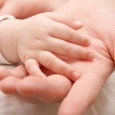Thomas The Tank Engine, Peppa Pig and Postman Pat might seem like sweet, gentle characters, but they hide some pretty dark secrets – if you look hard enough.
For me, this year’s February half term coincided with a severe sinus infection, a teething, sleepless one-year-old and, of course, Storm Doris. Whilst I know many parents would have been able to battle through this and manage to do half a dozen craft activities to entertain their child each day, I am, essentially, a terrible person when ill. So, instead, faced with the prospect of a number of days stuck indoors with two exuberant children, I turned to my usual saviour – the television.
When I think back to my childhood, I remember how children’s cartoons were limited to just a handful in the morning and then again in the afternoon – all of which were displayed on our tiny black and white television. I, therefore, now think my mother must have been a saint to manage two children as a single Mum with no access to Cbeebies, Netflix or Amazon Prime. This was especially true during the two days where the slightest movement made me feel as though my head was about to explode, and on demand children’s television was my lifeline.
No doubt fuelled by a combination of sleep deprivation and Lemsip, I found myself becoming increasingly invested in the brightly coloured characters that paraded around on my television screen – accompanied by jingly music that did my headache no favours. I studied English at university, so have been primed to find hidden meaning in stories, admittedly usually where there wasn’t any, but the idea seemed good at 3am when the 3,000 word essay was due in the next day. As a result, and perhaps partly inspired by the pleasant woozy feeling that comes from decongestant, I started to question the motivations of Bob the Builder and Peppa Pig. I came to the conclusion that almost all children’s television is full of hidden dark meaning, perhaps designed to prepare our children for the hardship that comes with being a grown-up with responsibility and bills to pay. This is evident in a number of modern children’s favourite cartoons.
Thomas the Tank Engine: The Rise of Automation & Capitalism

CTR Photos / Bigstockphoto.com
An old classic that has received a modern upgrade, Thomas The Tank Engine is on the surface, a delightful tale of little engines wanting to do their best. But delve deeper and you will find a harsh reality where machines have replaced humans in jobs with token roles given to the humans – presumably to prevent a mass uprising. The prime example of this can be found in Thomas’s driver.
What exactly is his purpose? Thomas, driven by sense of self-importance and over-inflated ego that has derived from a strange numbering system where he is number one even though Gordon is clearly faster and provides a much better passenger service, frequently makes idiotic mistakes, often leading to disaster. Thomas’s driver never seems to challenge Thomas’s actions or take steps to prevent the arrogant engine causing delay to the passengers. The compensation payments for delayed journeys must be huge.
The engines of Sodor seemingly have free reign to do as they wish with only the Fat Controller, multi-national CEO and clear member of the established elite, who is also known as Sir Topham Hatt, able to assume any form of control. On the Island of Sodor, humans have become mindless drones, whilst machines feed the profit of the fat cats (or controllers in this case). It’s clearly a metaphor for the dystopian future that awaits us.
Bing: Child Abandonment
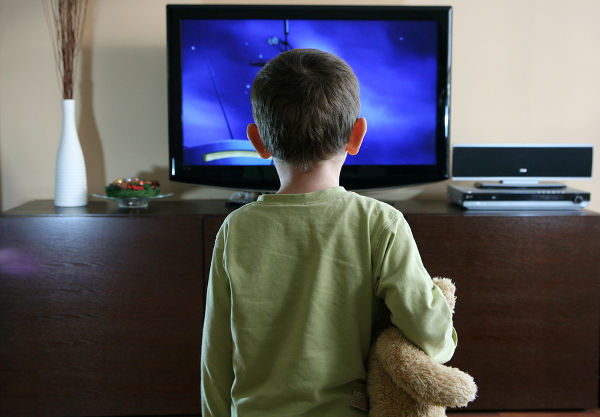
”Round the corner, not far away, Bing is off to children’s social services today.” Because, seriously – just where are Bing’s parents? Why is he being left in the care of a cuddly toy? Bing’s parents must have been there at some point, since why else would Flop live in a house where he needs to use a stool to access most of its contents? Where are all the other children’s parents? Do they all live in a strange orphan village? And, why, oh why, oh why, does Pando always remove his trousers as soon as he arrives anywhere? More to the point, why does a Panda even have trousers to begin with?
I have so many questions about Bing, mainly because it’s my son’s favourite TV show and I have 50 episodes of it recorded so we can have the pleasure of watching it over and over and over and over again. I have concluded that it is essentially about child abandonment. Bing teaches our children that they cannot rely on us at all times. Instead, they need to become somewhat self-sufficient in case we disappear and leave them in the care of a knitted insect who can’t reach the good snacks that we keep on the top shelf of the kitchen.
Topsy & Tim: Substance Abuse

Twintastic! OK, Topsy and Tim might not have dark undertones, but their mother, Joy, is clearly an alcoholic. Or, possibly addicted to valium. Why? Because no parent can remain that calm and composed when faced with one child acting up – let alone two. Let’s look at the evidence. Joy willingly hosts a birthday party in the family home for the twins.
I’ll ignore the fact that this is ridiculous in itself given that the wonderful modern invention of the soft play centre makes opening up your home to 20 snotty, loud children with chocolate coated fingers is completely unnecessary. Instead, let’s focus on how throughout the party Joy remains completely calm, whilst all around her bedlam is unleashed in her home. It’s because in between rounds of pass the parcel she’s secretly knocking back swigs of Brian’s, her husband, vodka stash. The one that he’s been building up since they found out they were having twins.
In the Night Garden: The Afterlife
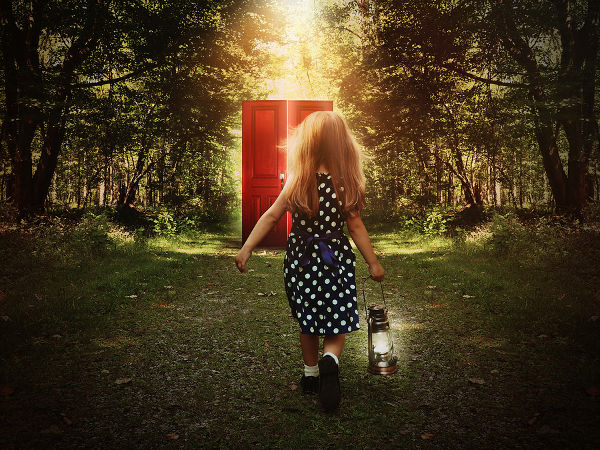
In The Night Garden is on each evening, as part of the CBeebies bedtime hour. You know, the hour that is actually about two hours before your child is in bed because after the “bedtime hour” they have to go to the toilet and brush their teeth, have three stories, locate teddy (he’s down the side of the bed), do the alphabet on their wall freeze forwards and backwards twice, go to the toilet again, check the wardrobe for monsters, all before finally passing out with you dozing off on the floor next to them. The programme, from the same chap that gave the world Teletubbies, is a dazzling array of colour and music (perfect for bedtime, obviously) and a favourite of many children.
It certainly seems lovely. However, it starts with Iggle Piggle on a boat, sailing to a far off land. In Egyptian mythology, Ra’s boat would take his subjects to the afterlife and the image of a boat to the afterlife has pervaded literature and art throughout history. The night garden is clearly, therefore, purgatory, and Iggle Piggle must try and earn his way out to heaven. He is faced with numerous challenges on the way; there is the temptation to kiss saucy mistress Upsy Daisy with her inflatable skirt and travelling bed, and trying to avoid the aggressive force of Makka Pakka attempting to clean everyone’s sins via the act of extreme face washing. The show ends each time with the words, “Don’t worry Iggle Piggle, it’s time to go” and, sadly, we never find out if he made it to heaven or hell.
Postman Pat: Technology Can’t Mask Incompetence
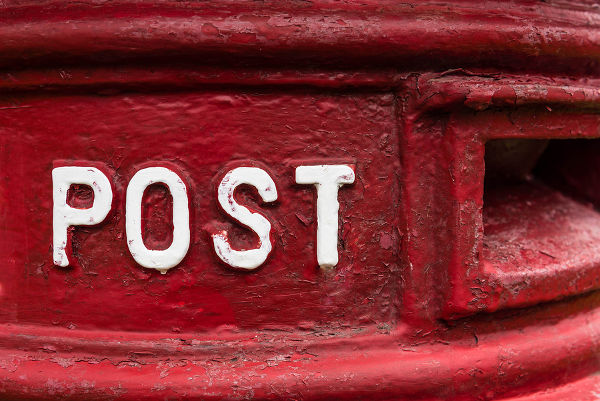
When I was a kid, Postman Pat had a van, and a cat. Alf occasionally helped with his tractor but that was it. These days Postman Pat is undoubtedly the best-equipped postman the Royal Mail has to offer. Alongside his van he has a snowmobile, a motorbike, an aeroplane and a limousine. He even has a boat, since apparently you need that up in the Yorkshire Dales. Clearly, this is why Royal Mail needed privatising; they had no money leftover as someone put Pat in charge of purchasing.
However, despite access to all of this technology, Pat, resolutely and without fail, manages to mess up every single delivery. He loses the item. He breaks the item. He even opens up the item and uses it without the recipient’s permission, which must be a breach of Royal Mail rules. He is, fundamentally, the world’s worst postman, and that is despite the fact that his little rural postal branch has the budget of a Premiership football team. Postman Pat teaches us that you can have all the technology in the world, but still be useless at your job. On the other hand, you don’t need to worry too much, since you probably won’t get fired for it because it’s too hard to fire anyone these days.
Peppa Pig: The Rise of the Gig Economy
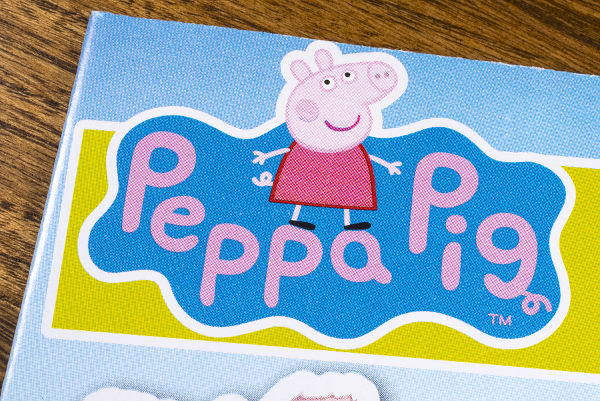
chrisd2105 / Bigstockphoto.com
We have been hearing a lot in the news lately about the rise of the “gig economy”, where instead of one stable job, employees flit from contract to contract. Whilst there have always been self-employed contractors, the recent increases in numbers of the self-employed have lead to a number of questions about how the government addresses this in terms of taxation and workers rights.
The creators of Peppa Pig clearly saw this coming when they came up with the character of Miss Rabbit. Poor Miss Rabbit is a slave to the gig economy. She doesn’t have just one job with regular hours and a monthly pay cheque. Instead, she has a plethora of different roles that she obviously feels she needs to do in order to maintain a reasonable standard of living in these days of austerity and economic uncertainty.
Miss Rabbit has been a fire engine driver, a Christmas tree seller, a supermarket cashier, a helicopter pilot, a museum curator, and even a dental nurse – along with many more roles. When I was at school we spent hours taking tests to determine our ideal career. Miss Rabbit teaches our children that they need to be prepared to take any job, because, these days, no job offers long term security.
A Ray of Light from CBeebies

Denis Makarenko / Bigstockphoto.com
I, therefore, conclude that children’s TV is designed purely to prepare our children for a depressing future where humans are mindless worker drones who can only seek respite from the daily drudgery by indulging in alcoholism and the hope that one day, Iggle Piggle can lead them to heaven. Thankfully, CBeebies has sought to counter this by giving us Mums – a little ray of hope.
Actually a few rays of hope. Namely Mr Bloom (aka Ben Faulks), who is simply lovely, Dr Ranj, who is also lovely, and of course, Tom Hardy reading the bedtime story (again lovely). So, next time I’m confined to the sofa faced with the depressing dystopia presented in children’s television, at least I can take comfort in the small offerings of loveliness.




